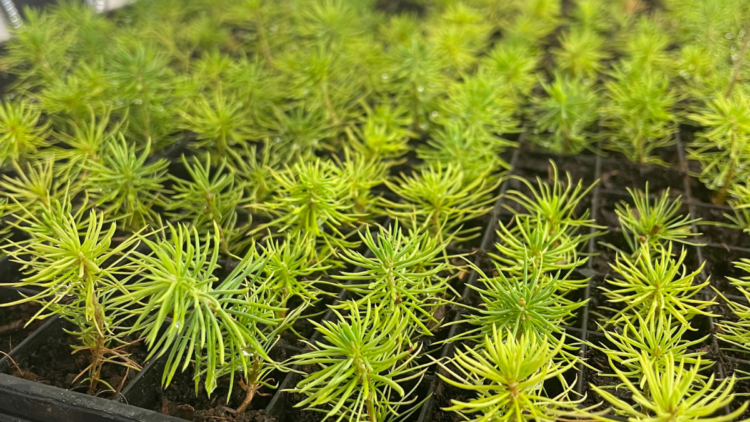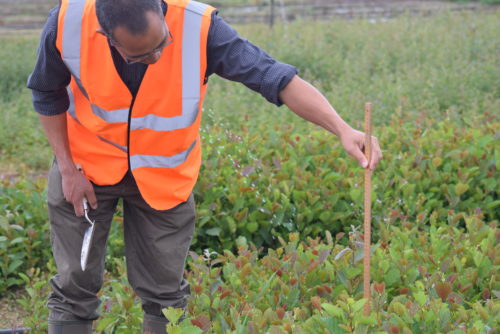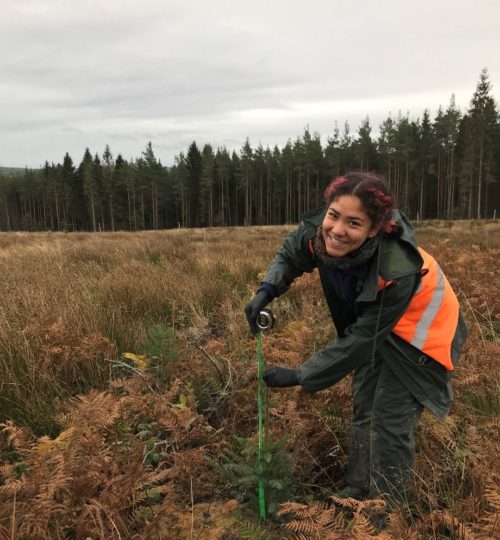Harnessing their Power for Carbon Sequestration
Trees play a crucial role in carbon sequestration as wholly natural carbon sinks – a reservoir that absorbs more carbon than it releases. They can absorb and store carbon dioxide from the atmosphere, helping to mitigate the effects of climate change.
When looking at planting a site, it is crucial to consider the different possible ecosystems and their suitability for tree planting to maximise the benefits of tree planting for carbon.
Photosynthesis plays a vital role in the carbon dioxide absorption process of trees. Through the process of photosynthesis, trees absorb carbon dioxide and release oxygen, effectively removing carbon dioxide from the atmosphere and storing it.
This process is crucial in helping to mitigate climate change as it helps to reduce the concentration of greenhouse gases in the atmosphere.
Trees to Aid Flooding, Air Pollution and Excess Heat
Trees act as natural filters, removing carbon from the atmosphere and providing us with cleaner air to breathe. Planting new woodlands also creates essential habitats to wildlife, including birds, insects and fungi.
They can help with flood mitigation too, with a mature tree capturing over 700 gallons of water per year. The canopy they create with their leaves, branches and trunks also slows down rain before it hits the ground, this is known as interception.
Additionally, trees also contribute to cooling urban areas, reducing run-off and filtering water, further enhancing their environmental benefits.
The process of photosynthesis and the subsequent storage of carbon in trees make them an essential tool in combating climate change and reducing carbon emissions.
Trees for Timber production
The timber produced by trees also serves as a sustainable resource that contributes to carbon sequestration. But, the UK currently imports around 80% of its wood requirement, making it the world’s second largest importer of wood.
Sustainable forestry practices ensure that felled trees are replaced, allowing new trees to continue absorbing carbon dioxide. The carbon the tree absorbs over its lifetime also remains stored even after it is cut.
As a building material, timber has the lowest embodied energy (the energy used in process from production to end-user) when compared to steel, concrete and aluminium.
Reforestation efforts have the potential to significantly reduce carbon emissions. By planting and maintaining trees, we not only enhance carbon sequestration but also create a sustainable source of timber in the UK. The need to use timber further supports the importance of tree planting in addressing climate change and promoting environmental sustainability.
We are facing an increasingly urgent need to reduce our timber imports and use home-produced timber instead. Commercial productive forests are becoming vitally important in the UK to supply this need for timber, but there is often resistance from the public to plant coniferous forests at either the land purchase or harvesting stages. The right tree in the right place at the right time is an important decision to ensure you get the best out of the land, especially when it comes to timber production, which a professional forester can advise on.
Looking to plant trees?
Maelor Forest Nurseries produces and supplies commercial quantities of bare root trees and shrubs suitable for forestry, hedging and native woodland planting. We supply the vital trees needed to fulfil the UK’s timber requirements for the future, along with helping to diversify and enhance biodiversity.
Our technical and lab work aims to improve growing conditions on the nursery to produce a better-quality plant and to ensure that this quality is maintained down the line, from dispatch to planting out and beyond.
The application of our genetic research using the process of Somatic embryogenesis (SE) allows Maelor to produce trees which can grow straighter and more efficiently, leading to improved timber quality and increased profits for the owner from a more efficient harvesting process and outputs at the sawmill.
More information about our wide range products can be found here maelor.co.uk/products or contact us here maelor.co.uk/contact-us
 https://www.maelor.co.uk/wp-content/uploads/2023/03/Somatic-Embryogenesis-1-500x281.png
https://www.maelor.co.uk/wp-content/uploads/2023/03/Somatic-Embryogenesis-1-500x281.png










